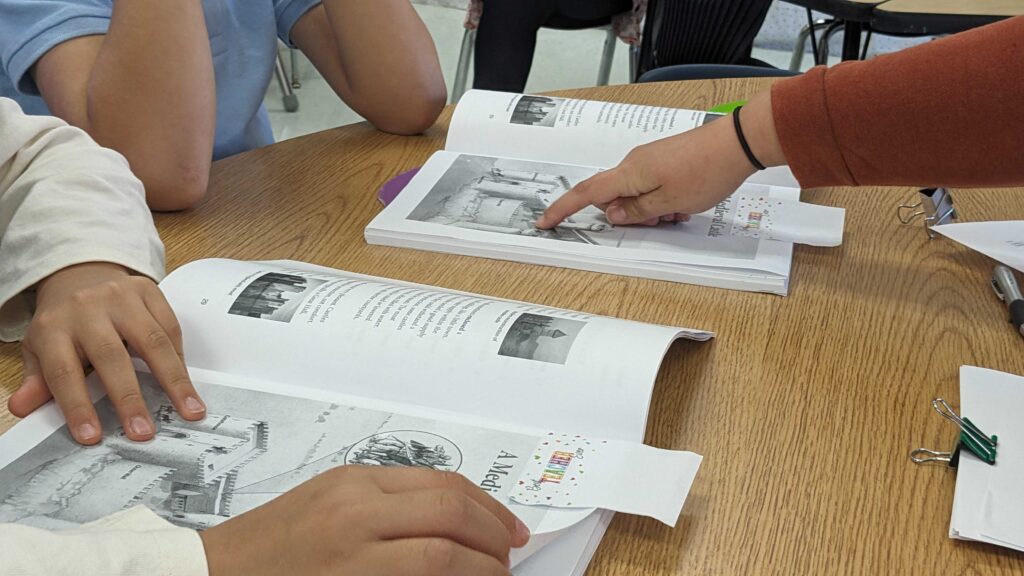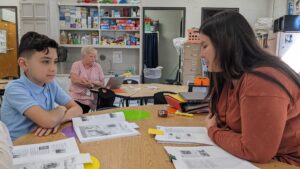
More than 12,000 Tennessee fourth graders are in tutoring this school year to improve their English language arts skills. These are students that scored less than proficient on the state’s end-of-year exam in the spring.
Without tutoring, they may have been held back.
These students will need to show “adequate growth” when they take their spring TCAP exams. The state board of education is still finalizing what that means. The body heard a proposal on first reading during its meeting last week.
Students who miss that mark will not be allowed to move on to fifth grade.
Tennessee’s Department of Education recently published a report on the impacts of the state’s literacy policies, including its retention law.
In addition to the thousands of fourth graders required to participate in low-ratio, high-impact tutoring, many more students across grades levels have been opting in as well.
What tutoring looks like
At DuPont Elementary School in Old Hickory, nearly 100 students are participating in Accelerating Scholars, the district’s free tutoring program. That’s more than a quarter of the students enrolled at the school, according to the district’s data portal.
 Alexis Marshall WPLN News
Alexis Marshall WPLN NewsHolly Earl tutors fourth grade students at Dupont Elementary School.
On a recent Thursday, two fourth graders visit Holly Earl’s classroom during what would be her lunch time. They’re coming to get some extra reading support.
The trio sits down together at a small table. They open their workbooks to a passage about castles in the Middle Ages.
The students take turns reading paragraphs out loud. They learn what the words “siege” and “moat” mean. Then Earl asks them:
“Do you think the castles were built for protection or comfort?”
“Protection,” they respond.
Earl asks them to explain why they think that. Quickly, both readers return to the text to back up their answers. One reads that castles were “gloomy.” They both point to a sentence in the passage that reads “castles were designed for protection, not comfort.”
“I love that you guys went back in the story to find the answer,” Earl tells them.
Later in the lesson, Earl goes over prefixes. The students get practice using “un-” and “non-” words in sentences, like “unhappy” or “nonthreatening.”
The skills they’re learning in this small group setting are designed to help boost their literacy. And improve their scores.
One student’s perspective
Liam Ramos is one of the students. He says he can feel himself improving.
“I feel like I have (been) getting better because I’m starting to practice a little bit more.”
He’s starting to read more at home. He even has a couple of Captain Underpants books checked out from the school library.
Ramos’ reading skills are also helping him in math class, where he’s starting to encounter word problems.
Dana Westveer coordinates the tutoring program at DuPont Elementary. She says it has been a challenge, but her school made preparations to adapt.
“We like to have in-person tutors, so we like for our teachers here to do it. They can do it either during school, during their planning time, or before or after school.”
The district offers a stipend to teachers who dedicate extra time to helping kids catch up.
“We’ve been very fortunate. We’ve had great response from our teachers who want to do that and want to help,” Westveer says.
MNPS also accepts volunteer tutors from the community. Those interested in volunteering can visit the Accelerating Scholars web page.

